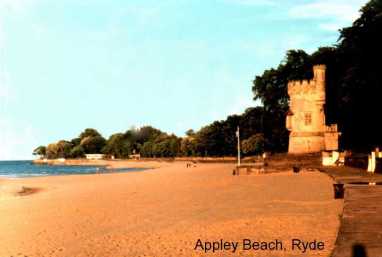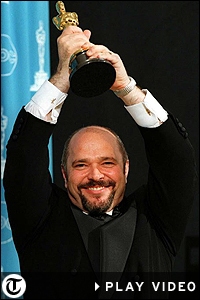14 March, 2011
The 3rd Annual Minghella Film Festival closed last night with a June Tabor concert in the unlikely – but wonderful – venue of Freshwater’s Memorial Hall. (June and her collaborator, pianist Huw Warren, needed a Steinway, and the Mem Hall has one, not to mention an established reputation for world-class concerts.)
June has been part of our family soundtrack ever since she recorded Anthony’s songs for the television version of his play, Whale Music, in 1982. It was such a thrill to have her on the Island and performing live, after nearly three decades of knowing her only through her recordings.
She themed her sets around ideas of the sea and our maritime history – appropriate to the Isle of Wight setting, but also to her latest album, Ashore.
It was a wonderful, transporting night. June doesn’t do frills, in music or in presentation. Her concession to image was a smart black Chinese silky jacket with red trim, but she wore it over what might have been her gardening clothes. On each wrist there was a watch, with the face inside rather than out. Her focus is on unadorned purity and simplicity of sound, and in this there is no lack of passion. At her most intense moments, as for example in her haunting solo King of Rome, she clenches her left fist in apparent pain.
Her voice is one of the most distinctive in English folk, resonant in the lower registers but with a capacity for dainty jauntiness when the mood takes her. Her speaking voice is surprising, almost girlish. She has no interest in being cool. She’ll sing daft ditties by William Makepeace Thackeray. Then she’ll take your breath away with a superb, simple, angry rendition of Elvis Costello’s Shipbuilding.
My favourite, King of Rome – I confess I requested it weeks in advance – tells the true story of Charlie, a pigeon racer from the west end of Derby, who sends his bird to Rome in 1913. On the day of the race, a storm blows in and a thousand birds are lost. Everyone tells him he should have known better. All that land and sea! Charlie says: “Yeah, I know – but I had to try. A man can crawl around, or he can learn to fly. And when you live round here, the ground seems awful near…”
That sense of dreams seeming a long way from coming true chimes with our experience of growing up on the Isle of Wight in the 1970s and 1980s. You looked across at Portsmouth and the mainland and you knew the action was somewhere that way, but never here. Youth was one big wait – for the time to go to college and not come back.
It’s not that we didn’t feel pride in the Island. We did. We felt a deep sense of belonging – to a place distinctive, beautiful and unique. You can’t grow up on the Island and not have the images of its cliffs and bays burned into your brain. You can’t spend your formative summers there without carrying forever the ability somehow to smell the warm red of its local brick. Nettles. 1976. Ladybirds. I can close my eyes any day in London and hear the old SRN6 Hovercraft booming across Ryde sands onto the slipway.
But you always knew you’d be going. And that created a forlorn relationship, not just between generations, but also between youth and home. The story, however idyllic, had tragedy built in. The Victorian shelters on the Esplanade, where small dramas of smoking and snogging were played out in grey off-season drizzle, were hardly “ours” any more than they belonged to summer’s “grockles”. Because we were all visitors in the end. Of all the inhaled images of the Island, the most intoxicating are those connected with arrivals and departures.
King of Rome speaks to me because it is about the need to dream and to act on dreams, however small. The possibility, even the likelihood, of being blown off course, swept away and never seen again. And despite that, the need to try. Anyone who grew up on the Island in that period knows that sensation.
When my brother was young, he used to accompany our granny down to the beach at Ryde, where she used to dream of love returning. Her sad story inspired Anthony to write, and to escape. The ground seemed awful near.
As June Tabor paints her picture of lost dreams, the hairs stand up on the back of your neck. You cannot help but wallow in the inexpressible sadness of it all. “Charlie we told you so. Surely by now you’d know – when you’re living in the west end, there ain’t many dreams come true.”
It comes as such a shock, even if you know the song, that suddenly there’s a wing-flash up in the blue; that the bird, after weeks of battling, has somehow made it back. Charlie come outside quick, he’s perched up on your roof! The King of Rome!
It is fitting, then, that the Film Festival inspired by Anthony happens on the Isle of Wight and not anywhere else. It’s where the dreams are formed that matters, not where they are played out. It’s about returning to the perch, coming home, about knowing where you belong.
If you can pin a life of achievement onto one moment, Anthony’s was perhaps Oscar night, 1997, when The English Patient swept the board. This was a film shot mostly, of course, in Rome. And feted five thousand miles away in LA.
And yet it felt like a homecoming. Nobody thought it was odd, least of all us, when he held his trophy aloft and declared, “this is a great day for the Isle of Wight.”



